Hampshire headteachers back calls to end ‘dithering’ over GCSE and A-level exams
and live on Freeview channel 276
It comes as devolved governments in Scotland and Wales scrapped Year 11 and Year 13 exams in favour of teacher-based assessments.
Concerns have been raised as Covid has seen pupils spending unequal amounts of time in schools, teachers have spent time off due to self-isolating and access to remote learning continues to vary.
Advertisement
Hide AdAdvertisement
Hide AdAll of this adds to a concern that pupils’ education is not being done on a level playing field, with some at a disadvantage.
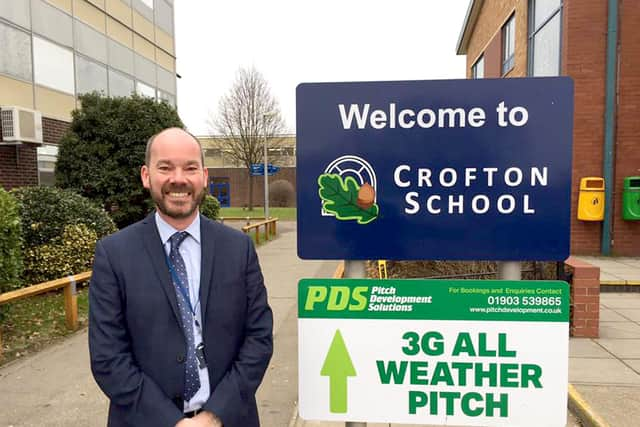

In summer teachers’ grades were widely seen as inflated, and if this is repeated could see schoolchildren in Portsmouth following England’s rules at a disadvantage compared to those in the devolved nations.
The government has insisted exams will still take place in England.
But uncertainty has seen headteachers in the Portsmouth area seeking to protect their students from a possible change.
Advertisement
Hide AdAdvertisement
Hide AdOne senior leader has warned Year 11 pupils in Havant that they must treat mocks as potentially their final exams in case of a U-turn.
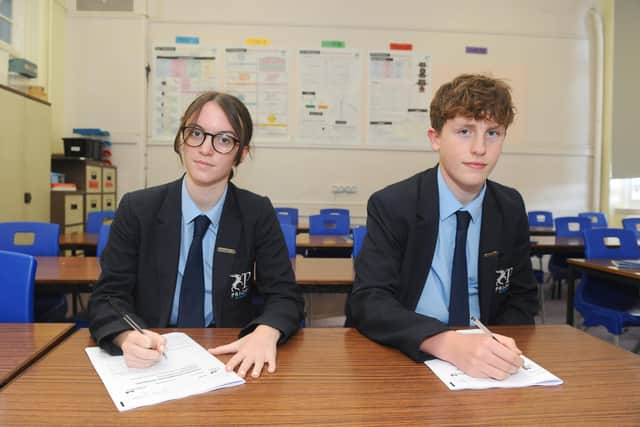

They have been joined by teaching unions and the city council who are urging government to ditch the ‘dither’ and provide clarity following Wales’ decision last week.
Headteacher at Crofton School, Simon Harrison, wants exams to stay in place but said any change must be announced by the Department for Education quickly to avoid further unfairness.
He said: ‘We can see from previous U-turns on policies made by the government that there’s a danger there could be a sudden change of stance.’
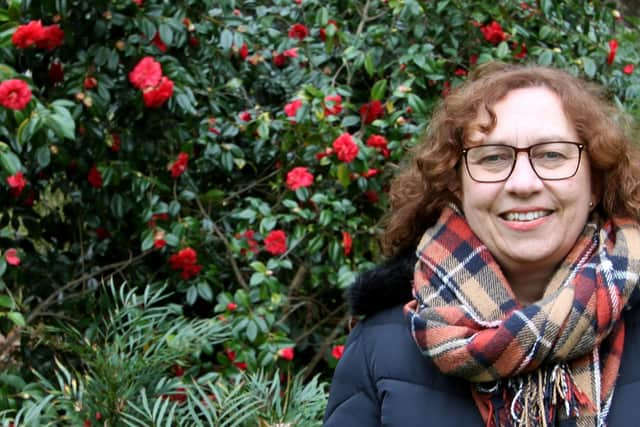

Advertisement
Hide AdAdvertisement
Hide AdSwitching focus from end-of-year exams would be ‘very difficult,’ he said, and might not leave enough time to focus on coursework or modular exams as alternatives.
He added: ‘What schools and students need is clarity, and if there’s going to be an alternative then we need to know very soon otherwise we risk replacing one system with something equally unfair.
‘I know how disappointed last year’s cohort were not to get to sit their exams and I know from feedback that it would be no small thing for the current Year 11 to have exams cancelled after the work they’ve put in.’
The headteacher of Southsea’s Priory School, Stewart Vaughan, said mitigating measures have been put in place to make sure pupils are in the best place possible to take exams.
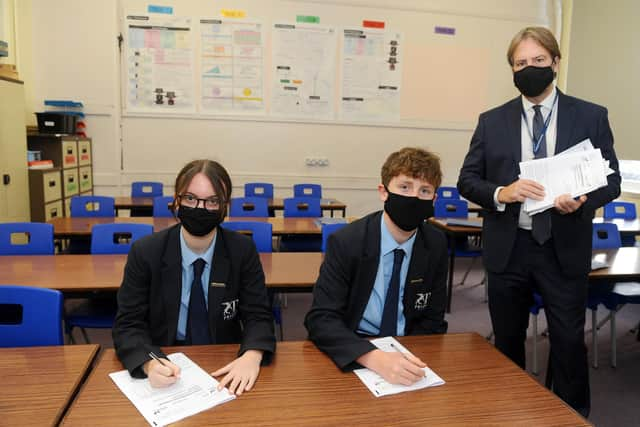

Advertisement
Hide AdAdvertisement
Hide AdMr Vaughan said: ‘It has been a wonderful achievement by schools, communities and councils to get schools open for full-time education and it would be my preference for pupils to sit their exams.
‘While there isn’t a perfect solution there’s now a lot of support in place such as catch-up tutoring to mitigate time lost.
‘Last week we had to send all of Year 9 home but we were able to deliver a full 25 period week of lessons streamed live.’
He goes further to say the whole method of assessing children at 16 is now under question and whether children need to do so many GCSE exams as more go into further education.
Advertisement
Hide AdAdvertisement
Hide AdAt the crux of the issue is the impact of Covid infections and self-isolation measures on the attendance of students and staff.
The most recent available attendance data for Portsmouth schools showed for the week ending November 6, rates for primary and secondary schools was 83.8 and 91.7 per cent respectively – an overall average of 88 per cent.
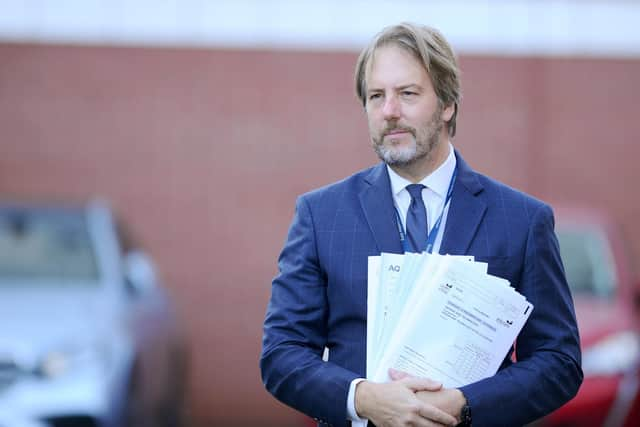

Five per cent of overall absence is Covid related.
In Hampshire, the rate for the same week was 94 per cent for primary schools and 90 per cent for secondary.
This compares to a national average of 91 per cent primary attendance and 86 per cent secondary.
Advertisement
Hide AdAdvertisement
Hide AdAttendance at Park Community School in Havant is around 90 per cent.
But uncertainty remains a concern for headteacher Chris Anders.
He said: ‘At the moment exams have been delayed by three weeks but it’s not as simple as saying “use this time to catch children up” as pupils will have been off at different times and missed different parts of the course.
‘Expecting all children to sit the same exam will inevitably have some degree of unfairness with discrepancy in how much their school has been disrupted.
Advertisement
Hide AdAdvertisement
Hide Ad‘At the moment children in the south have an advantage over those in the north where levels of absence and disruption have been greater.
‘The decision in Wales also creates an unfairness as last year’s centre-assessed grades showed an inflated set of results and for this cohort – particularly thinking about university offers – you will have the same group of students competing against each other, one group who’ve sat the exams and one with a different form of assessment.’
Mr Anders is also fearful of a last minute U-turn.
He added: ‘Our Year 11s are sitting their mock exams and I’ve told them not to take them lightly as they may end up counting towards final results.’
Portsmouth City Council’s cabinet member for education, Cllr Suzy Horton, is also concerned about levels of inequality.
Advertisement
Hide AdAdvertisement
Hide AdCllr Horton said: ‘The pandemic has been such an unequal school experience for pupils that it’s really difficult to have a one size fits all exam.
‘The one thing schools need is clarity and so if the government are going to change assessment they need to do it now.’
Amanda Martin, Portsmouth teacher and president of the National Education Union, added: ‘The dither shown currently over what to do for next year is demonstrating that ministers have learnt very few lessons.
‘The same mistakes must not be made again and in order to restore public confidence changes to make exams in 2021 fairer are critical. There needs to be a real strategy not U-turns and last-minute decisions.
Advertisement
Hide AdAdvertisement
Hide Ad‘Many secondary and college pupils are missing out because of the need to isolate.
‘We need greater options in order that students can be assured of a fair grade next summer.’
Commenting on the decision to retain summer examinations a Department for Education spokeswoman said: ‘Exams are the fairest way of judging a student’s performance, which is why Ofqual and the government all agree they should go ahead next year.
‘We are working closely with stakeholders on the measures needed to ensure exams can be held, and will set out plans over the coming weeks.’
Digital Divide
Advertisement
Hide AdAdvertisement
Hide AdIt’s not just the virus and levels of absence that has created an unequal playing field.
The ability of pupils to learn has greatly differed depending on access to remote classes, the level of support at home and access to technology and broadband.
Portsmouth City Council’s cabinet member for education, Cllr Suzy Horton, said: ‘The pandemic has exacerbated the digital divide experienced by children dependent on access to technology to learn remotely.’
Headteacher at Priory School in Southsea, Stewart Vaughan, added: ‘There’s no doubt the pandemic has highlighted the digital disadvantage that still exists for some students.
Advertisement
Hide AdAdvertisement
Hide Ad‘As a school we are looking to solve this but it’s disappointing that we were promised 143 additional laptops by the government and in reality got 29.’
Primary Perspective
Younger children are also still set to take exams.
Year 6 Standard Assessment Tests (SATs) are due to take place in the summer.
It means the impact of attendance and question of fairness also applies to primary settings.
Headteacher at Lyndhurst Junior School, Ali Beechurst, said: ‘Levels of absence and disruption has not been the same for all schools and with the disparity of access to digital learning it’s not a level playing field.
Advertisement
Hide AdAdvertisement
Hide Ad‘As a school we are preparing for the SATs as planned but there needs to be some kind of acknowledgement in the assessment system that it’s not fair for all children.’
Mrs Beechurst also wanted to raise concerns about the national welfare of teaching staff.
She added: ‘I’m concerned about the welfare impact on staff of the pressures to keep schools as normal an environment as possible.
‘There’s staff going into schools who’ve clinically vulnerable partners and family members and there are real anxieties about the risk of passing the virus on to them.’
What students said
Advertisement
Hide AdAdvertisement
Hide AdThe head boy and girl at Priory School in Southsea are wary of a government U-turn but are determined not to let the disruption and uncertainty detract from their goal of sitting exams and GCSE success.
Year 11 pupil, Ava Errington-Noden, 15, said: ‘It’s a very difficult situation because it’s like nothing experienced before but it’s a challenge we can overcome to move on with our future.
‘Sitting the exams means we can get the results we want and need in order to move on. Whatever the circumstances we will just have to cope with it.’
Classmate, Ethan Bailey, also 15, added: ‘Yes, I do worry about a government u-turn but you have to keep your head down and focus on the exams and use them as a springboard rather than worry about what may happen in the future with something I can’t control.
Advertisement
Hide AdAdvertisement
Hide Ad‘It’s an uncontrollable situation with Covid and we have to keep our heads down and focus on our education.’
Comment: Covid has exacerbated inequality in education
During my 17 years in the teaching profession there was a clear shift away from the modular and coursework approach of continued assessment towards final linear exams.
It was a shift which increased the pressure on schools and in particular children – many of whom struggled with both the anxiety and one-size-fits-all approach of everything resting on a final exam.
The previous system had its own question marks of accuracy and fairness, but the pandemic has highlighted the shortfalls of the end-of-year system that leaves two years’ worth of work resting on a couple of hours in a school’s hall or gym.
Advertisement
Hide AdAdvertisement
Hide AdOne positive to emerge out of the Covid carnage is a reopening of the wider debate of how children are assessed.
There has always been inherent unfairness in the school assessment system due to levels of home support and varying value placed on education, access to IT, poor attendance, quality of teaching, learning styles and other socio-economic impacts.
Covid has simply exacerbated those inequalities and made them more apparent.
A message from the Editor, Mark Waldron
The News is more reliant than ever on you taking out a digital subscription to support our journalism.
You can subscribe here for unlimited access to Portsmouth news online - as well as our new Puzzles section.
Comment Guidelines
National World encourages reader discussion on our stories. User feedback, insights and back-and-forth exchanges add a rich layer of context to reporting. Please review our Community Guidelines before commenting.